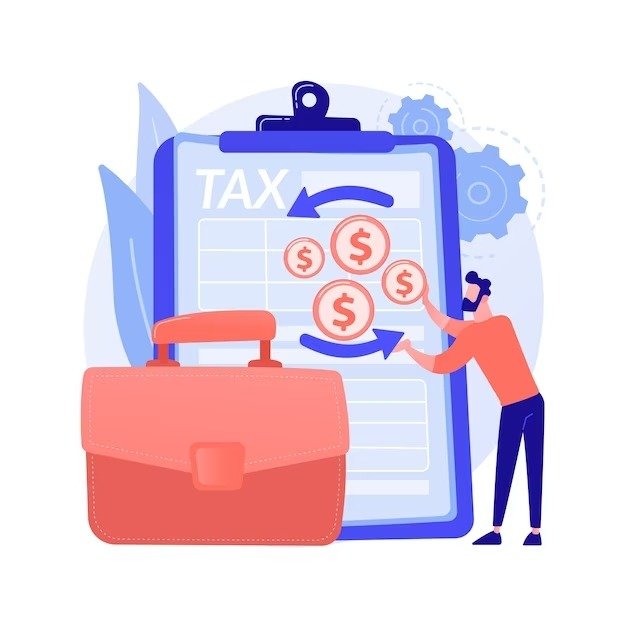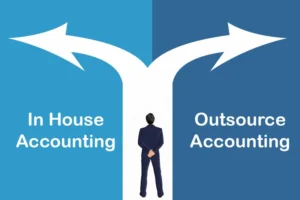Living in a foreign country can be a thrilling experience, however, dealing with taxes can add complexity to the situation if you don’t have a proper US tax guide. For Americans residing in Canada, it is crucial to comprehend and handle tax responsibilities in both countries.
This comprehensive guide aims to explore the complexities of the US tax system concerning American expats living in Canada. Our goal is to aid individuals in navigating the intricate realm of cross-border taxation by elucidating key concepts and offering valuable guidance.
Although this guide provides valuable information, it is crucial to keep in mind that tax laws are susceptible to modifications, and individual circumstances can differ. To obtain customized advice and guidance tailored to your specific situation, we recommend contacting our team at SAL Accounting.

Table of Contents
With our specialized knowledge in cross-border taxation, we can assist you in maneuvering through the intricacies of both the US and Canadian tax systems, guaranteeing your peace of mind and financial prosperity.
Delve into our extensive guide on US taxation designed specifically for Americans residing in Canada. Uncover valuable insights and expert strategies to effectively manage “cross-border tax responsibilities”, ensuring compliance and maximizing your financial standing. Rely on the expertise of our seasoned accounting firm to deliver customized guidance that aligns with your circumstances.
How Americans Working in Canada Are Taxed?
Americans living and working in Canada encounter several tax obligations that they must fulfill. Here are the key taxes applicable to employees in the country:
| Type of Deduction | Description |
| Income Tax | Canadian employees pay federal and provincial income taxes based on their earnings and corresponding tax brackets. Similar to federal state tax in the US. |
| Employment Insurance (EI) | Contributions made by employees to the Employment Insurance program, which provides temporary income support during unemployment, parental leave, or sickness. |
| Canada Pension Plan Disability (CPP-D) | Contributions made by eligible employees to the Canada Pension Plan Disability program, providing benefits to individuals with severe and prolonged disabilities. |
| Provincial Health Premiums | Some Canadian provinces impose health premiums on employees, deducted from their Paychex, to support funding for provincial healthcare systems. |
| Union Dues | Obligatory payments are made by union members to support the activities and services provided by the labor union. Different from union dues in the US. |
US Tax Guide on Income Tax
Canadian employees are accountable for paying federal and provincial income taxes based on their earnings and the corresponding tax brackets. The Canadian income tax system resembles the federal state tax system in the United States. The tax amount owed is determined by the employee’s total income for the year and is computed using the applicable tax rates and brackets established by the federal government and provincial/territorial governments.
Typically, employers deduct the required income tax amount from employees’ wages through the Pay As You Earn (PAYE) system and remit it to the Canada Revenue Agency (CRA) on behalf of the employee.
Employment Insurance (EI) Premiums
In Canada, employees contribute to the Employment Insurance (EI) program, which offers temporary income support during periods of unemployment, parental leave, or sickness. Both employers and employees have the responsibility of making contributions to this program.
The contribution amounts are determined as a percentage of the employee’s insurable earnings, up to a maximum annual insurable earnings limit set by the government. These premiums are deducted from employees’ paychecks, and employers also contribute a portion on behalf of their employees.
Canada Pension Plan (CPP) Contributions
In Canada, most people are obliged to participate in the Canada Pension Plan. This program helps individuals facing long-term and significant disabilities. It supports retired individuals by providing a steady pension income based on their contributions during their working years. This pension ensures retirees have a reliable financial foundation, enhancing their economic well-being in retirement.
The contribution amount is calculated by applying a fixed percentage to the employee’s earnings that qualify for pension benefits, which are capped annually as per government regulations.
Union Dues
If an employee in Canada belongs to a labor union, they may have a responsibility to pay union dues. These dues are intended to support the union’s activities and services, including negotiating for improved wages, and working conditions, representing employees during labor disputes, and offering various benefits and services to union members.
Provincial Health Premiums
Certain provinces in Canada implement health premiums on employees to support the funding of their respective provincial healthcare systems. It’s important to note that not all provinces have this premium system in place. These premiums are usually calculated based on the employee’s income and are deducted directly from their pay. The specific amount of the premium can differ based on the province and the individual’s level of income.
It is a difficult to understand and comprehend these complicated taxes. Do not allow the overwhelming complexities of cross-border taxation to burden you. Reach out to SAL Accounting without delay to arrange a consultation with our experienced team.
Double Taxation in Canada and How to Avoid it?

The possibility of double taxation exists when you are an American working in Canada. Double taxation occurs when the same income is taxed in both the country where it is earned (source country) and the country of your residency (home country).
EXAMPLE
Suppose you are an American citizen employed as a consultant in Canada, providing consulting services to clients in Canada. As a U.S. citizen, you are obligated to file and pay taxes to the U.S. on your income earned worldwide, and similarly, Canada taxes its residents on their global income.
In this situation, you will need to report your earnings from Canada to both U.S. and Canadian tax authorities. If the tax rates in the U.S. and Canada differ, you might find yourself paying taxes to both countries on the same income.
For example, let’s assume the U.S. tax rate is 20% and the Canadian tax rate is 25%. If you made $50,000 in Canada, you would owe $12,500 in Canadian taxes (25% of $50,000). However, you would still be responsible for U.S. taxes, which would amount to $10,000 (20% of $50,000). Consequently, you would face double taxation on the $50,000, as you would be paying taxes to both countries on the same income.
Ways to Prevent Double Taxation
Double taxation can present a problem for individuals who earn income in Canada and are still liable to pay taxes in both Canada and US. The situation arises when both their home country and the foreign country they work in impose taxes on the same income, leading to a substantial financial burden. There are certain methods to offset double taxation.
Tax Treaties: Tax treaties serve as agreements between the United States and Canada to prevent the issue of double taxation. These treaties consist of provisions that determine the primary taxing authority for specific income types. Additionally, they offer relief mechanisms such as tax exemptions or credits. As a result, Americans residing in Canada are safeguarded against being taxed twice on the same income.
Foreign Tax Credits: Americans living in Canada can benefit from the foreign tax credit provided by the U.S. tax system. This credit allows them to offset their U.S. tax liability by the amount of taxes already paid to the Canadian government. By utilizing this credit, Americans can effectively avoid double taxation by reducing their U.S. tax obligation on their Canadian income.
Foreign Earned Income Exclusion (FEIE): Another avenue available to Americans in Canada is the Foreign Earned Income Exclusion (FEIE). This provision enables eligible individuals to exclude a specific portion of their foreign-earned income from being subject to U.S. taxation. In 2023, the maximum exclusion amount was $108,700. By taking advantage of the FEIE, Americans residing in Canada can diminish their U.S. tax liability on income earned abroad.
Tax Planning and Structuring: To minimize their overall tax liability, Americans in Canada can engage in prudent tax planning and structuring. This involves carefully managing their income, deductions, and credits to optimize their tax situation and avoid unnecessary double taxation. It is advisable to seek guidance from a specialized tax professional with expertise in international taxation to ensure effective tax planning.
Challenges For Americans Living in Canada
- Complexity: Figuring out double taxation and how to get relief from it can be complicated. Dealing with the rules of your country’s taxes, international agreements, and tax treaties needs a good understanding of tax laws.
- Changes in Tax Laws: Tax laws can change as time goes on. Keeping up with any changes in both your home country and the other country’s rules is super important for planning your taxes well.
- Expert Advice: Since international taxes can be very tricky, getting advice from tax experts who know about dealing with different countries’ taxes is important. They can help you understand the specific rules for your situation and make a plan to avoid being taxed twice.
- Keeping Records: It’s really important to keep good and complete records of the money you make, spend, and the taxes you pay in the other country. This helps back up what you say about your taxes and the relief you’re asking for.
- Timing: When you do things like getting money, investing, or bringing money back to your home country can affect how much tax you have to pay. Planning these actions carefully can help you pay less tax overall.
- Not Evading Taxes: While trying to pay less tax twice is okay and even encouraged, it’s really important to know the difference between fairly doing that and breaking the law to avoid taxes. If you try to hide money or lie about it to avoid taxes, you can get in big trouble and have to pay heavy fines.
Conclusion
In conclusion, successfully navigating the intricate realm of international taxation, particularly when it comes to mitigating double taxation, necessitates careful consideration and expert guidance. For Americans residing in Canada, it is crucial to grasp the intricacies of tax treaties, harness the potential of the foreign tax credit and foreign earned income exclusion, and engage in strategic tax planning and structuring. These vital steps enable individuals to minimize tax burdens, uphold compliance with relevant tax laws, and achieve financial peace of mind.
At SAL Accounting Firm, we comprehend the unique challenges confronted by expatriates and offer specialized expertise in international tax matters. Our team of seasoned professionals possesses comprehensive knowledge of cross-border taxation complexities, allowing us to provide tailored solutions to optimize your tax position. Contact us to save yourself from double taxation.
FAQS
What Is A Treaty-Based Return Position?

A tax reporting position known as a treaty-based return position asserts that a U.S. tax treaty supersedes or alters a relevant provision of the Internal Revenue Code, leading to reduced tax liability. Typically, an individual must submit a distinct IRS Form 8833 for each treaty-based return position. Click here to learn more.
Do You Get Any Credits On Your US Tax Return For Taxes Paid To CRA?

When filing your US Tax return make sure your cross-border tax accountant files taxes for 1116 to your tax return so you can have an exemption for the taxes you have paid to CRA on your Canadian income. This will cause in a tax reduction on your US tax liability and will result in no tax paid to the IRS since the tax rate in Canada is higher than that of the US.
They can deduct the amount of tax they paid to Canada from their U.S. tax bill by claiming this credit on Form 1116 of their tax return. This prevents double taxation and may result in a refund or decrease in U.S. tax liability. If you want to accurately claim tax credits that are eligible and get the most out of your refund, it’s best to talk to a tax professional. Reach out to a cross-border tax accountant right now.
What Happens If I Paid Too Much Tax In Canada?

If you paid more tax than you ought to pay to the CRA, our CPA will help you to get the maximum possible refund on your Canadian personal tax return. When completing your US 1040 tax return, you can claim sufficient tax credits to reduce your tax liability to zero. It’s important to note that the Internal Revenue Service (IRS) will not provide a refund for taxes paid to the Canada Revenue Agency (CRA). However, the advantage is that any unused foreign tax allowance can be carried forward to the following year to offset your future foreign income,






